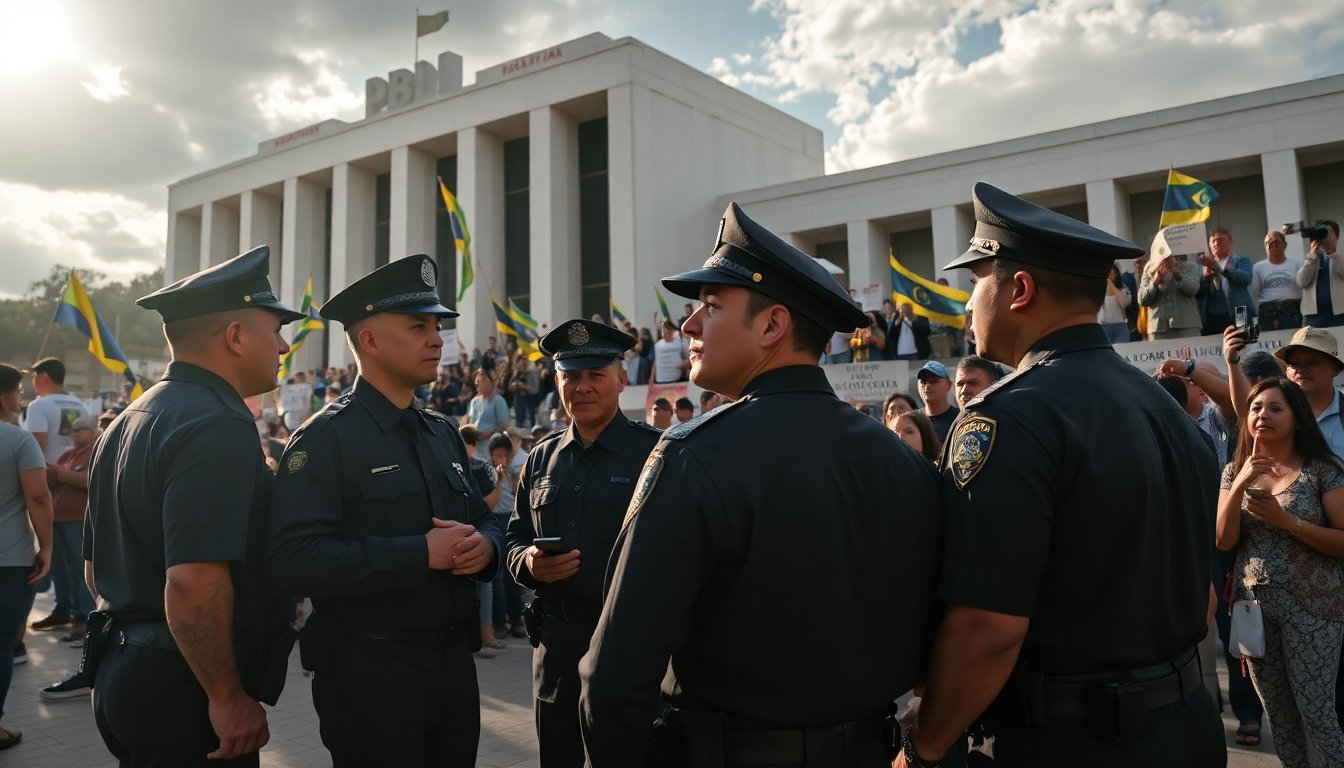Table of Contents
In a significant development in Brazilian politics, former president Jair Bolsonaro has begun serving a prison sentence of 27 years. This sentence follows his conviction for orchestrating a coup attempt after his electoral defeat. The ruling has created considerable upheaval across the nation, with many previously skeptical about the likelihood of such severe repercussions.
On Saturday, Bolsonaro was arrested by federal police, acting on a ruling from Supreme Court Justice Alexandre de Moraes. The judge noted a breach of Bolsonaro’s ankle monitor as a major concern, raising fears that the former leader might attempt to evade justice. This arrest concludes a protracted and contentious legal battle, underscoring the deep divisions within Brazilian society regarding Bolsonaro’s political legacy.
Details of the arrest
Bolsonaro’s legal troubles escalate with arrest
Bolsonaro’s arrest occurred early on Saturday morning, marking a significant escalation in his ongoing legal issues. He had been under house arrest since August, following a determination that he was a flight risk. An ankle monitor was required as part of his restrictions. However, the situation intensified when authorities reported a violation of the monitoring device, prompting Justice de Moraes to take immediate action.
In his ruling, de Moraes expressed concerns about a potential escape, especially in light of a protest organized by Bolsonaro’s son. The judge highlighted the possibility of Bolsonaro seeking refuge in the U.S. Embassy in Brasília, a tactic previously employed by some of his associates. This preemptive measure was described as essential to safeguarding the judicial process and maintaining public order.
Supporters and detractors react
Following the announcement of Jair Bolsonaro’s arrest, supporters and critics gathered outside the federal police headquarters in Brazil. Supporters, adorned in the colors of the Brazilian flag, voiced their outrage over what they viewed as an injustice. One dedicated supporter, Eliane Leandro, stated her intention to protest daily until Bolsonaro’s release, calling him the best president of her lifetime.
In contrast, opponents of Bolsonaro celebrated his imprisonment as a triumph for Brazilian democracy. Keit Lima, a local councilor, expressed relief, highlighting the necessity of defending democracy in Brazil. This starkly polarized reaction illustrates the ongoing tensions within the country as it navigates the implications of Bolsonaro’s presidency.
Implications of the conviction
The conviction of Jair Bolsonaro, along with several of his associates, arises from a conspiracy aimed at undermining Brazil’s democratic process after his defeat by Luiz Inácio Lula da Silva. The charges against Bolsonaro include leading an armed criminal organization and orchestrating a violent effort to dismantle the nation’s democratic framework. Despite the severity of these allegations, Bolsonaro has repeatedly denied any wrongdoing.
This moment is pivotal in Brazilian history, as Bolsonaro becomes the first former president to be convicted for attempting a coup. His legal troubles are not unique; other political figures, including former presidents Michel Temer and Lula, have also encountered significant challenges within Brazil’s complex legal system.
Future political landscape
Bolsonaro’s influence persists despite legal challenges
Former Brazilian President Jair Bolsonaro continues to be a significant presence in the country’s political arena. Although he is barred from running for office until at least 2030, recent polls suggest that he could remain a competitive candidate if the political landscape shifts. The impact of his imprisonment is likely to shape future elections in Brazil.
Political analysts indicate that Bolsonaro’s family may need to devise strategies for upcoming elections, potentially presenting themselves as a viable alternative for his supporters. The narrative surrounding his imprisonment could be utilized to foster a sense of martyrdom among his base, complicating the challenges faced by President Lula and his administration.
As Brazil navigates this tumultuous period, the reactions to Bolsonaro’s sentencing underscore the profound divisions and passionate sentiments that characterize contemporary Brazilian politics.


